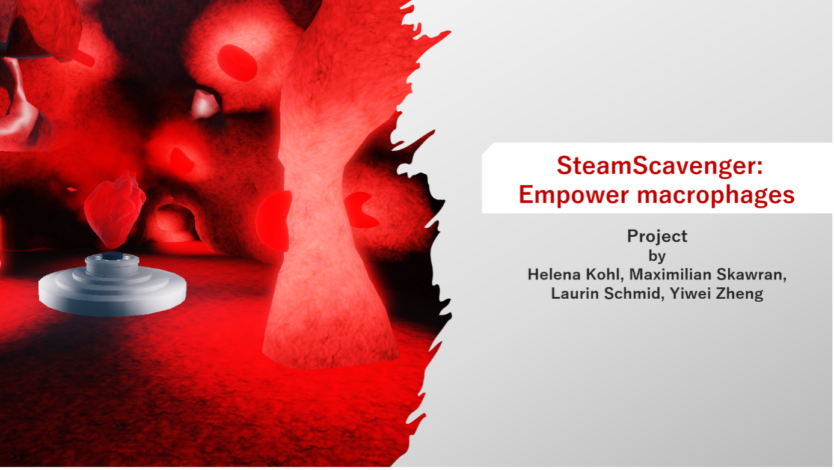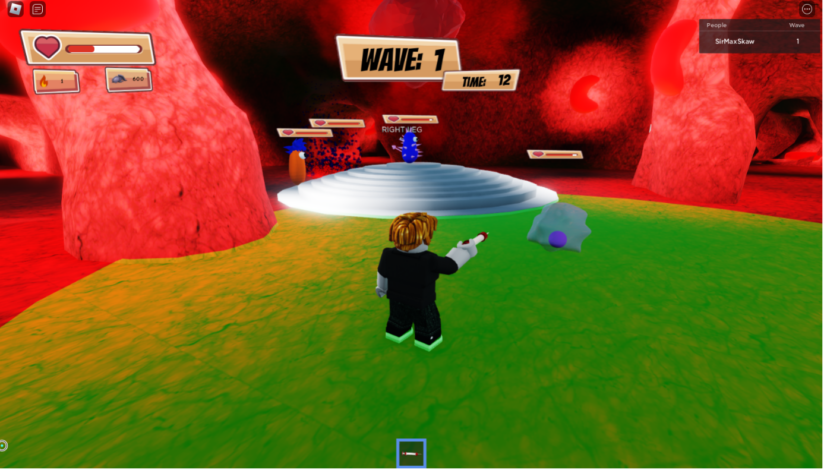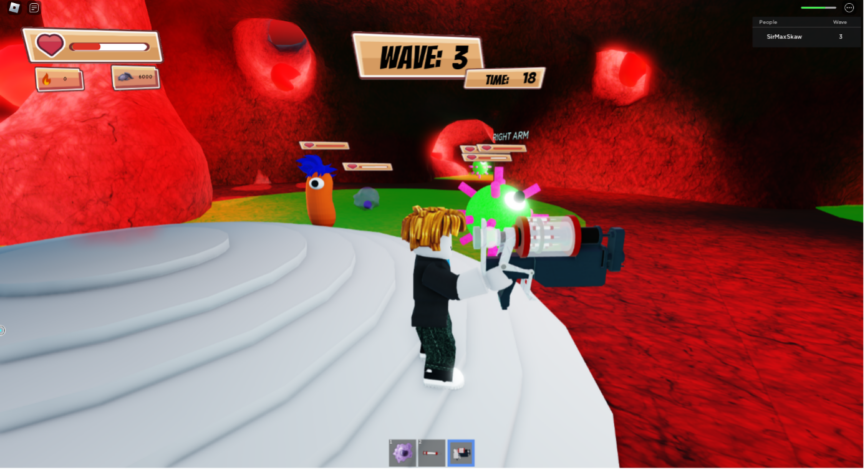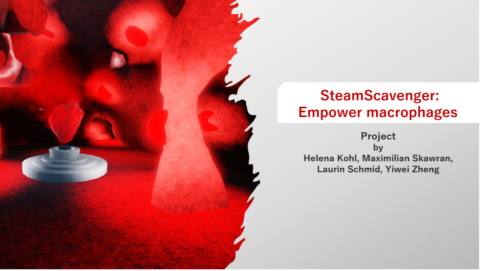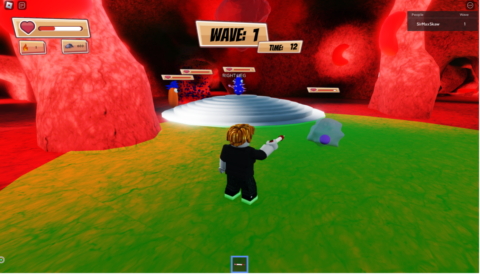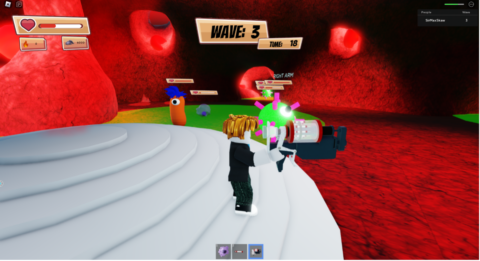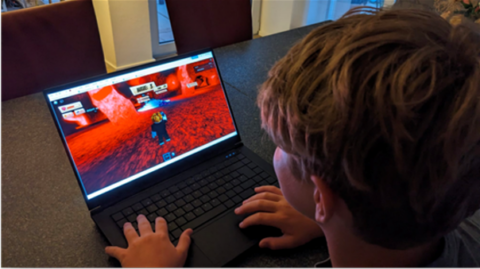Inflammania 3D – SteamScavengers: Empower macrophages
Herausforderung:
Digitale Game-Plattformen wie Roblox oder Minecraft erfreuen sich im Bildungswesen immer größerer Beliebtheit, da sie die Schaffung sozialer und immersiver Lernerfahrungen erleichtern. Allerdings wurde das Potenzial dieses aufkommenden Phänomens für die Wissenschaftskommunikation bisher kaum untersucht. In Kooperation mit dem Sonderforschungsbereichs 1181 (SFB 1181) der FAU entwickeln wir daher mehrere vernetzte 3D-Minispiele, die Spieler in die faszinierende Welt des Immunsystems eintauchen lassen, ihr Verständnis für Entzündungsmechanismen erweitern und Wissen über die neuesten Forschungsergebnisse des SFB 1181 vermitteln. Im Sommersemester 2023 stellten wir Studierende der Vorlesung „Designing Gamified Systems“ daher vor die folgende Herausforderung:
Entwerfen Sie ein Strategiespiel, in dem die Spieler:innen die Rolle des Immunsystems übernehmen, strategische Entscheidungen treffen um zu gewinnen und mehr darüber lernen, wie das Immunsystem Entzündungen nutzt, um Angreifer (z. B. Bakterien) zu eliminieren und Reparaturmechanismen in Gang zu setzen und welche Rolle hierbei das Protein IL-33 spielt.
Hierbei sollte Bezug zu aktueller Forschung des SFB hergestellt werden, insbesondere zu der Publikation „Faas et al., 2021, IL-33-induced metabolic reprogramming controls the differentiation of alternatively activated macrophages and the resolution of inflammation, Immunity 54, 2531–2546. DOI: https://doi.org/10.1016/j.immuni.2021.09.010„.
Datum: Sommersemester2023
Vorlesung: Designing Gamified Systems
Projektergebnisse:
Inflammania 3D – SteamScavengers: Empower macrophages
Team: Maximilian Skawran, Helena Kohl, Laurin Schmid, Yiwei Zheng
Abstract:
This project aims at the development of a video game that conveys biological knowledge in an entertaining and engaging way. It is based on research conducted at the University Clinic in Erlangen, which investigated how macrophages and IL-33 contribute to the resolution of inflammation. We wanted to make these complex biological processes understandable in a way that is accessible to children.
Since children typically do not have extensive knowledge of biology and have limited interest in conventional learning methods, we tackled this challenge with a gamification approach. The mission was to preserve the scientific accuracy of the biological information while creating an engaging game experience. For this reason, this project is based not only on biological research, but also on various gamification theories. In this way, we ensured that the focus is on the fun of the game, while at the same time providing continuous learning outcomes for the players.
As a result, we developed a game in which players navigate the human body as its immune system. They must protect the heart from various bacteria and viruses by strategically deploying macrophages and using the power of IL-33 to ensure their own survival. To implement this idea, we used Roblox, a popular online platform where users can create, share, and play games designed by others in a virtual environment.
